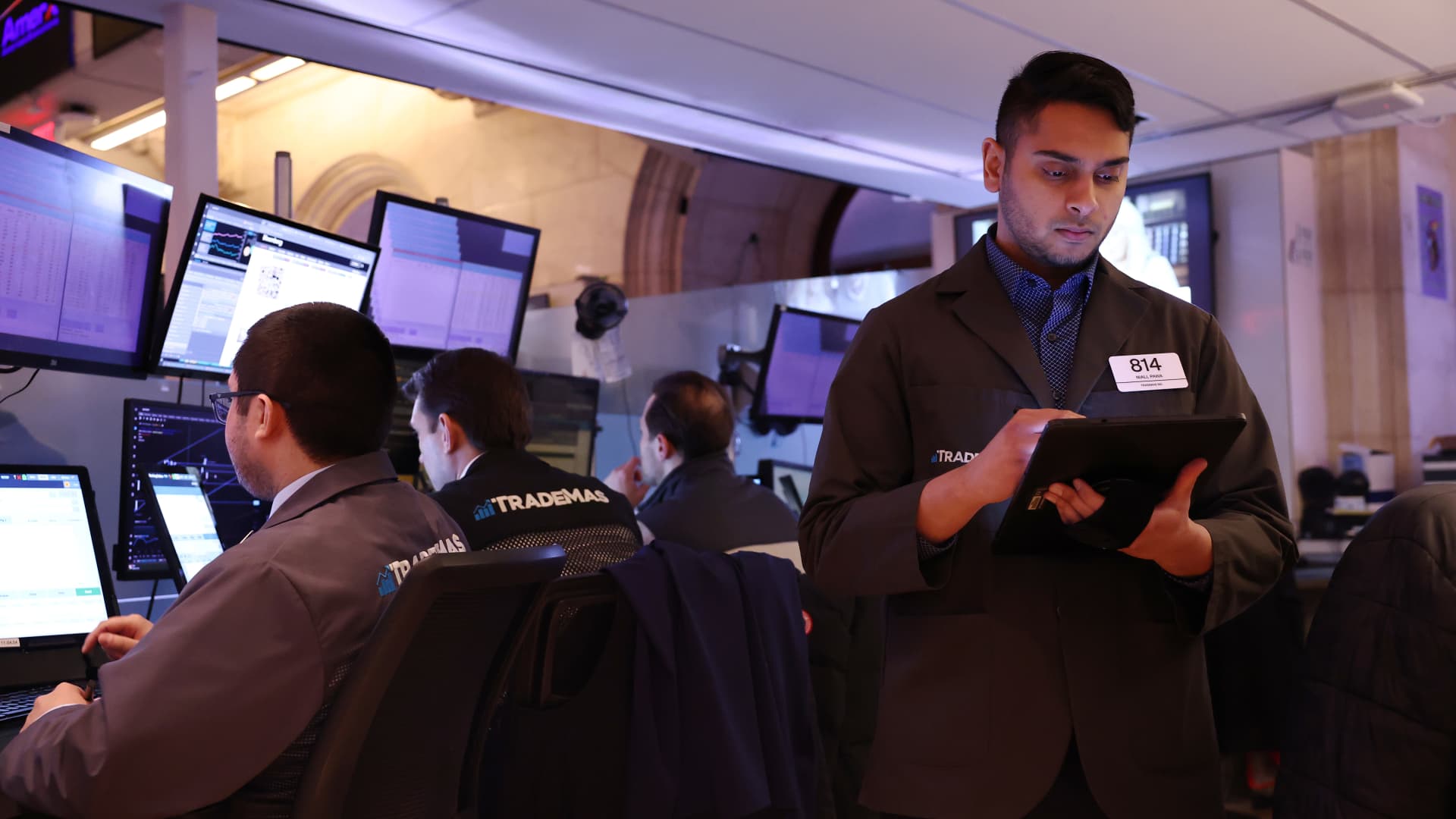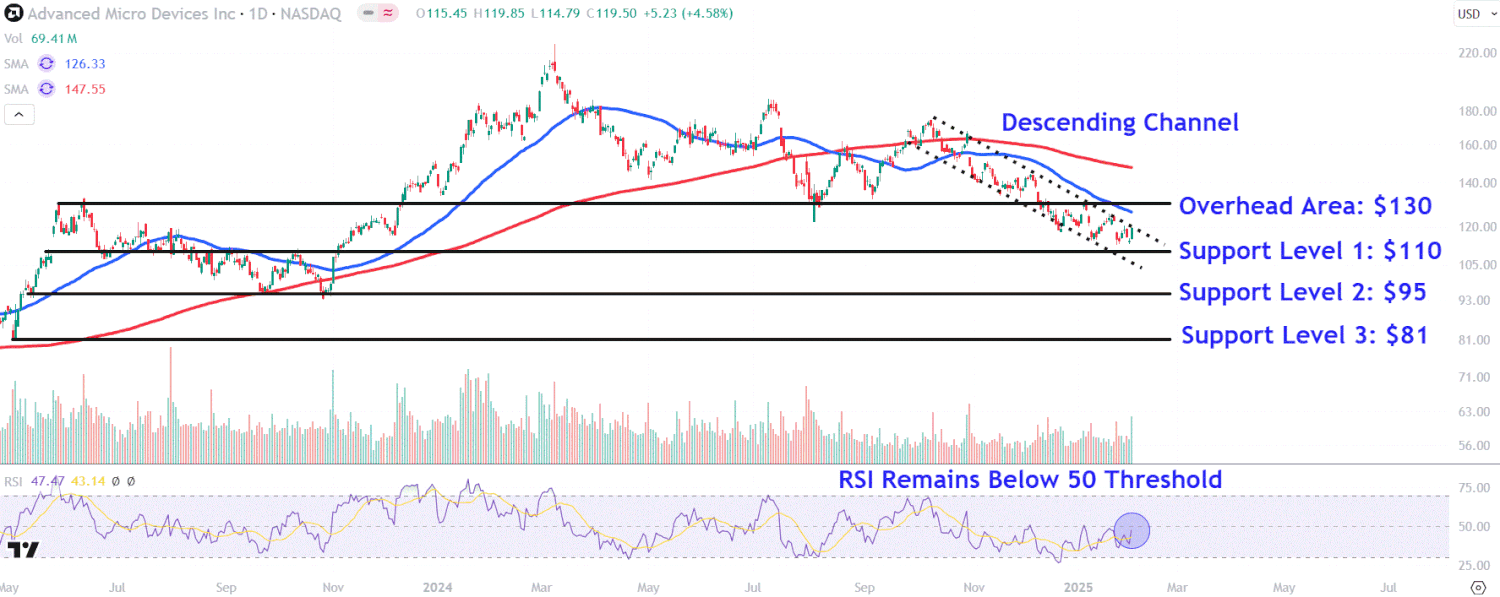Traders work on the floor of the New York Stock Exchange on Jan. 28, 2025 in New York City.
Michael M. Santiago | Getty Images
S&P 500 futures fell Tuesday night after Google-parent Alphabet posted disappointing revenue, following a positive session for the major averages.
S&P 500 futures and Nasdaq 100 futures slid 0.30% and 0.42%, respectively. Dow Jones Industrial Average futures was lower by 42 points, or 0.09%.
Alphabet shares tumbled 8% in extended trading after the Google-parent posted a cloud revenue miss, even as it ramps up spending on artificial intelligence, spooking investors who worried the megacap tech company will take longer to capitalize on its AI ambitions.
“These companies, the hyper scalers, are damned if they do and damned if they don’t, because they have to spend a lot to remain competitive, but they are cutting into their cash flow,” Bank of America’s Savita Subramanian said Tuesday on CNBC’s “Fast Money.”
“I don’t think it’s game over for big cap tech. I think these are big companies with lots of optionality. They can do what they did in 2023, cut costs, they can shore up balance sheets, do big buybacks, and they’re doing a lot of that,” the firm’s head of U.S. equity and quantitative strategy continued. “But they have to hire more, they have to spend more. It’s not the same profit story that it used to be.”
Alphabet
Elsewhere, Chipotle shares slid 5% after the burrito chain reported fourth-quarter same-store sales that rose less than expected. On the other hand, Snap shares advanced about 6% after the social media company’s fourth-quarter results beat estimates.
Wall Street is coming off a positive session. The Nasdaq Composite and S&P 500 rose Tuesday, gaining nearly 1.4% and 0.7%, respectively. The 30-stock Dow rose 134 points, or 0.3%. The S&P 500 and Nasdaq were bolstered in part by strong results from Palantir, which hit a fresh record high during the session.
Investors also shrugged off the latest tariff headlines, after the Chinese government hit the U.S with duties of up to 15% on imports of coal and liquefied natural gas, as well as a 10% higher duty on crude oil, farm equipment and selected cars. The move comes after President Donald Trump over the weekend announced a 10% levy on Beijing.
On Monday, the U.S. had agreed to pause more aggressive levies on Canada and Mexico.
“Where we are is an environment where you want to sort of prepare yourself for upside pressure, to rates, to inflation, to the idea that we don’t have an all-clear on policy decisions, until maybe closer to the second half,” Bank of America’s Subramanian said.
Earnings season continues Wednesday, with Walt Disney and Uber Technologies reporting results before the open.
On the economic front, investors are anticipating the latest ADP private payrolls report, international trade data, and the ISM Services Index.


